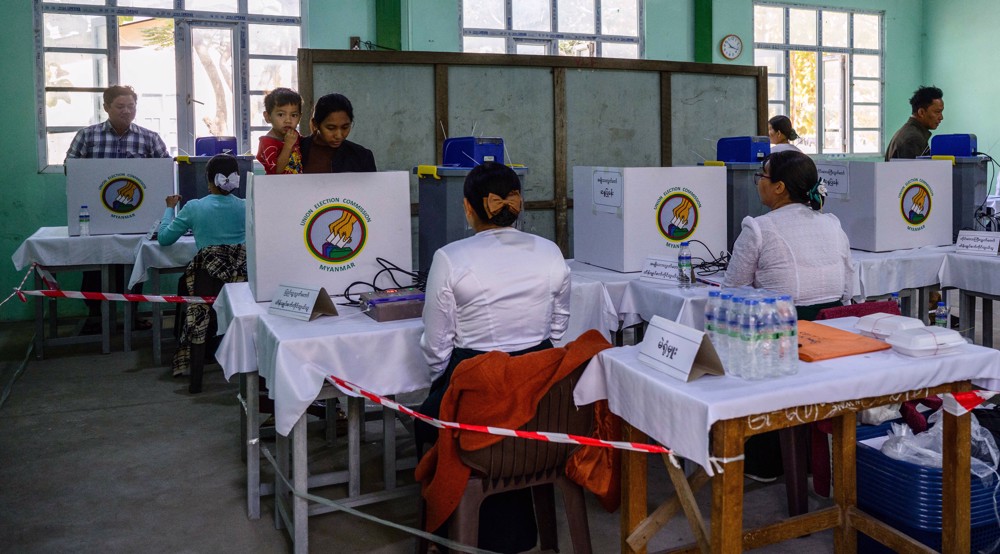Brain-scanning tech helps you choose the perfect perfume
French luxury brand Yves Saint Laurent (YSL) demonstrated what they say is a first-of-its kind, in-store experience that uses brain-scanning technology to help shoppers choose the perfect perfume based on their emotional response.
The tech was unveiled this week at the Viva Technology conference, dedicated to innovation and startups at Porte de Versailles exhibition center in Paris, France.
Visitors to the show were invited to try out the experience at the Yves Saint Laurent Beauty Scent-Sation; with booking slots quickly filling up on the day and for the next day.
Firstly, they fill out a touch-screen questionnaire, answering questions such as whether they prefer a fragrance close to the smell of a dense forest or of a spice market, and how they want the perfume to make them feel.
An algorithm then decides on six simple 'accords', with a multi-sensor, [electroencephalogram] EEG-based headset tracking their emotional responses to different scent families and analyzing these to make product recommendations.
"It measures emotions. You have a questionnaire and it measures emotions when you smell different fragrance accords and it tells you what makes you happy, stressed, confident," explained Nicolas Hieronimus, CEO of L'Oréal, which owns Yves Saint Laurent Beauty.
The experience was created in partnership with US-based bioinformatics company EMOTIV, that develops electroencephalography (EEG) technology to advance understanding of the human brain.
Hieronimus claimed "there is a 96% accuracy in terms of fragrance recommendation and consumer satisfaction."
"It is not bad! It is not bad! Not completely but it is fine.... At least, the recommendation worked for me," said one perfume aficionado after having her brainwaves tracked.
Another was less convinced: "It is not bad... I am not convinced by the three selected fragrances but the first and last ones match my taste more or less. It is not bad. "
Hieronimus added that he believes the technology will ultimately help make consumers' buying decisions easier.
"Personalization is not only creating a product made to measure, it's also helping the consumers find the right products for them amongst the thousands of products on the market. So it is part of the future of shopping," he said.
(Source: Reuters)
Gaza Civil Defense collapses as Israeli fuel blockade halts all emergency operations
UN Chief warns Israel’s E1 settlement plans threaten Palestinian statehood
Russia warns of military measures if US deploys weapons in Greenland
Iran's foreign minister ramps up regional diplomacy amid tensions with US
Israel pressing for Iran strike, Trump remains reluctant: Report
1,900 attacks recorded in January as Israeli violence intensifies in West Bank
Hamas condemns treatment of Palestinians at Rafah border, calls it ‘organized terrorism'
VIDEO | Press TV's news headlines









 This makes it easy to access the Press TV website
This makes it easy to access the Press TV website